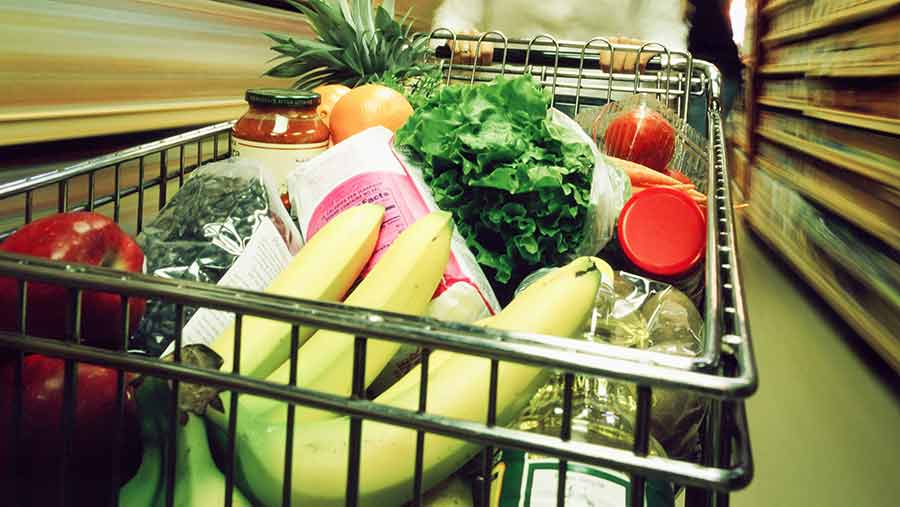Food bill to rise by £786 if plant protection products banned
 © Cultura/REX/Shutterstock
© Cultura/REX/Shutterstock The average annual UK family shopping bill will rise by £786 if plant protection products are removed from farms, according to a new report.
Commissioned by the Crop Protection Association and written by agronomist Séan Rickard, a former chief economist for the NFU, the report says the cost of fresh fruit and vegetable would rise by more than £4 a week, an extra £226 a year.
On average, families with two children would have to pay almost £140 more each year for cereal-based products and a further £60 for fresh meats.
See also: What potato growers need to consider ahead of diquat ban
The average household bill for alcohol and eating out is projected to rise by some £92 per year.
Meanwhile, the average weekly grocery bill for a family of four would rise by more than £15 a week – £786 per year – without plant protection products, the report suggests.
The UN Food and Agriculture Organisation estimates that 26-40% of crop yields are lost to weeds, pests and diseases. Without plant protection products, it estimates these losses could double.
If farmers are denied access to these products, there will be a significant drop in global food production, and a subsequent hike in food prices and drop in food quality, the report says.
Mr Rickard said: “The removal of plant protection products would present a severe challenge to already hard-pressed households, exacerbate income inequalities and make healthy eating more expensive. Some of the largest increases in prices would be for vegetables and fruit.”
Predicted price increases
- The cost of fresh fruit and vegetables would rise by more than £4 a week, an extra £226 a year
- The average household would have to find an extra £32 a year for milk, cheese and eggs
- Packed lunches would see a big price rise. The price of bread would increase by 67p a week, an extra £35 a year. Sandwich fillings such as bacon and ham would rise by 16p a week, an extra £8 a year, and cheese by 14p a week, an extra £7 a year
- The cost of a roast dinner, with chicken, greens and fresh potatoes, would be up by £1.47 a week. Adding a soft drink and a cake for dessert would mean another £1.94 a week, totalling an extra £177 a year.
- Eating and drinking outside the home would rise by £92 a year. The biggest cost increase will be on takeaways and snacks, which would cost an extra £24 a year.
Source: Plant Protection Products: The value of their contribution to lowering UK household expenditure on food and drink
